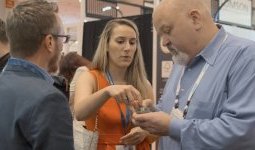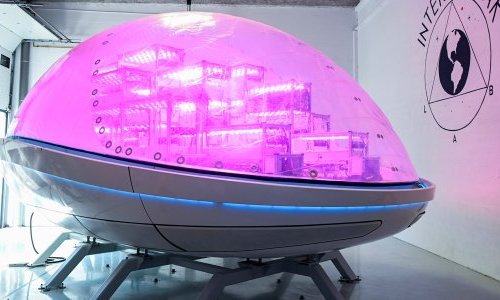To meet environmental challenges, all new Eurovetrocap developments are now driven by the reduction of the environmental impact, according to an approach based on the “waste hierarchy” proposed by the European Commission: if it is not possible to eliminate the need for packaging, the company opts for reducing it, reusing it or making it recycled and recyclable.
“Following this approach, last year we launched the Laura line, a landmark bestseller for our group, in a 90% recycled glass version, 60% of which is post-consumer, in 15, 30, 50 and 100 ml sizes. This is the highest recycled glass content available on the beauty packaging market to date. In parallel, we developed the Parigi Airless 50 ml jar, which combines sleek lines and reduced use of materials. Mainly made of PP, it has a very hygienic, POM-free and metal-free valve system,” explains Simon Silvano, Zero In·Pack Project Coordinator.
More recently, Eurovetrocap launched its first Refill range. It comes in a luxurious 50 ml glass jar, whose 100% recycled PP refill system includes a self-sealing cup and lid, and two 15 and 30 ml Airless glass bottles, also refillable thanks to a screw-in piston cartridge, equipped with a POM and metal-free pump.
Measure, reduce, compensate
To go further, Eurovetrocap has created Zero In·Pack, a true internal start-up intended to accelerate the environmental transition of the company, in line with market expectations.
“This entity, a true innovation start-up, was created in 2000 and is our concrete contribution to the European Commission’s ambitious objectives of a carbon-neutral territory by 2050, efficient economic growth uncoupled from the extraction of increasingly limited natural resources, and a territory that no longer leaves any population behind,” said Giampaolo Hermann, General Manager.
The name “Zero In·Pack” is in itself a statement of intent. While Eurovetrocap considers there is no such thing as a perfect packaging from an environmental point of view, the company has set itself the task of minimising the impact it generates, without compromising on the protection of the formulas and the aesthetic side.
“Cutting impact does not mean poorly looking packaging solutions,” emphasized Simon Silvano.
Central to the Zero In·Pack project is a lifecycle analysis tool developed with the Bocconi University in Milan.
“This tool allows us to guide our customers towards more sound choices in terms of packaging eco-design, in a quantified and tangible way, but also to make choices regarding the future product developments of the Eurovetrocap Group,” said Giampaolo Hermann.
By quantifying, from the design phase of the project, the impacts generated by a material, a manufacturing process, a type of finishing or an end-of-life processing, it becomes possible upstream to opt for lower-impact alternatives, at each step of the product’s life cycle.
“The aim is to understand where and how environmental impacts are generated, how to lower them and eventually compensate them,” concluded Simon Silvano.
The company, which employs around 100 people for EUR 50 million in turnover in 2020, intends to build on this new service to continue its development in Europe, its main market, and in North America, where it is recording rapid development.




































